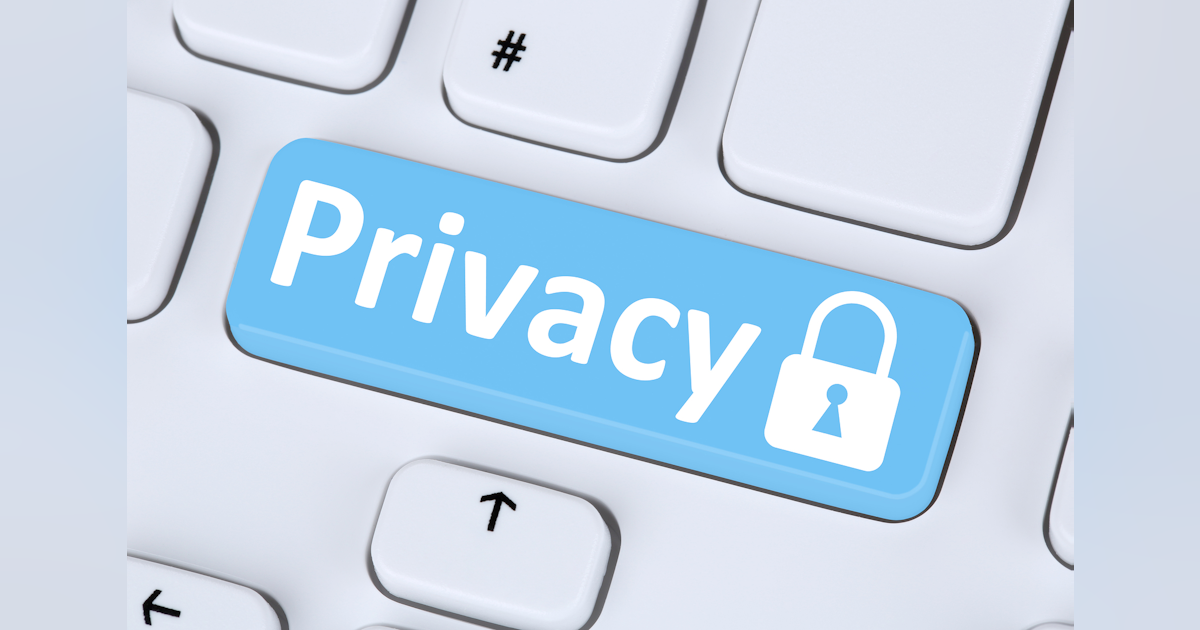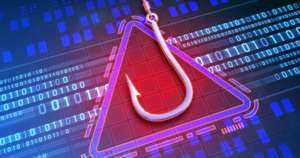Privacy Protection in a Digital World: Tips and Tools to Keep Your Data Secure
In an era dominated by digital connectivity and the ever-expanding online landscape, the concept of digital privacy and Protection has emerged as a paramount concern for individuals, businesses, and society as a whole. As the lines between the real and digital worlds blur, the need to protect our personal information, online activities, and data has become more critical than ever before. In this comprehensive article, we will delve deep into the realm of digital privacy, exploring not only the practical aspects but also the ethical dimensions that underscore this vital subject.
Understanding Digital Privacy

What is Digital Privacy?
Digital privacy is the safeguarding of one’s online persona and data from unauthorized access, surveillance, and misuse. It encompasses everything from your online behavior and interactions to the protection of sensitive personal information. In essence, it’s your ability to control who has access to your digital life.
The Value of Your Personal Data
Your personal data holds immense value, both to you and to entities with various interests. It’s the currency of the digital age, and understanding its worth is the first step in protecting it. From advertisers seeking to tailor their content to cybercriminals aiming to exploit it, your data is a sought-after commodity.
The Current State of Privacy
Data Breaches and Their Consequences
Data breaches have become all too common, resulting in the exposure and misuse of sensitive information. The repercussions of such breaches can be severe, including identity theft, financial loss, and damage to one’s reputation. Being aware of the consequences is pivotal in recognizing the need for privacy protection.
The Role of Big Tech Companies
Large technology corporations play a central role in the collection, analysis, and handling of user data. Their business models often rely on the insights drawn from user information. Understanding the practices of these tech giants sheds light on the complexities of digital privacy in the modern world.
Privacy Protection Fundamentals
Password Security and Management
At the heart of privacy protection lies robust password security. It involves crafting strong, unique passwords for each of your accounts, updating them regularly, and entrusting a reputable password manager to store and autofill your credentials. Strong passwords are a fundamental defense against unauthorized access to your digital life.
Two-Factor Authentication (2FA)
Two-factor authentication (2FA) offers an added layer of security by requiring two forms of verification for account access. Whether it’s a password and a one-time code sent to your mobile device or a fingerprint scan, 2FA significantly enhances the protection of your digital identity.
Data Encryption
Data encryption serves as a formidable barrier against unauthorized access. This process involves converting data into a code that is unreadable without the encryption key. It’s a fundamental element of data security, ensuring that, even if data is intercepted, it remains indecipherable to prying eyes.
Navigating the World of Online Privacy

Web Browsing Privacy
Your web browsing activities leave digital footprints. Safeguarding your online privacy involves practicing responsible browsing, such as using private or incognito modes, clearing cookies, and employing browser extensions that block tracking scripts.
Social Media and Privacy Settings
Social media platforms serve as reservoirs of personal information, making them lucrative targets for data collection. Adjusting your privacy settings, sharing cautiously, and being mindful of your online presence can significantly bolster your digital privacy.
Location and Device Privacy
The devices we use often track our location and collect data. Controlling the extent to which your location and personal information are shared is vital for maintaining privacy. Reviewing and adjusting location and privacy settings on your devices can help you regulate what information is disclosed.
Email and Communication Privacy
Email Encryption
Emails can carry sensitive information, making their encryption vital for secure communication. Encrypted email services and tools are available to protect the contents of your messages from being intercepted or accessed by unauthorized parties.
Secure Messaging Apps
Secure messaging apps, equipped with end-to-end encryption, ensure that only you and the recipient can access the content of your messages. Utilizing these apps heightens the security and privacy of your digital communications.
Protecting VoIP Calls
Voice over Internet Protocol (VoIP) calls, such as those made through platforms like Skype, warrant encryption to safeguard your conversations from potential eavesdropping. Encrypting your VoIP calls adds an extra layer of security to your communication.
Personal Data Protection
Safeguarding Personal Information
Protection of your personal information requires vigilant guardianship. It involves understanding the sources that request your data and the purpose behind it. Avoiding unnecessary sharing and staying cautious about phishing attempts are integral aspects of personal data security.
Credit Card and Payment Data Security
The security of your credit card and payment data is of paramount importance. Using secure payment methods and considering the use of disposable or virtual credit cards for online transactions can significantly mitigate the risk of financial data compromise.
Health and Medical Data Privacy
Your health and medical data are some of the most sensitive pieces of information. Ensuring their protection involves the use of secure health apps, a thorough understanding of data sharing policies in the healthcare sector, and a discerning approach to disclosing health-related information online.
Privacy in the Internet of Things (IoT) Era
Understanding IoT Devices and Risks
The Internet of Things (IoT) brings convenience through interconnected devices but also introduces privacy risks. Understanding the nature of IoT devices and their associated vulnerabilities is paramount for safeguarding your privacy in this era.
Securing Smart Home Devices
Smart home devices often collect data about your daily routines and preferences. Ensuring these devices are equipped with robust security measures and keeping them updated is crucial to protecting your privacy, especially within the confines of your own home.
Protecting Your Digital Identity
Identity Theft Prevention
Identity theft is a profound violation of privacy and can have far-reaching consequences. Prevention strategies include shredding critical documents, subscribing to identity theft protection services, and exercising extreme caution in sharing personal information online.
Social Engineering Awareness
Social engineering tactics involve psychological manipulation to extract personal information from individuals. Being aware of these tactics is critical in thwarting attempts to manipulate you into revealing sensitive data.
Online Reputation Management
Online reputation management involves actively monitoring what information about you is available on the internet and taking steps to correct or remove inaccuracies. These services are crucial for ensuring that your online presence aligns with your true identity.
Privacy-Focused Browsers and Search Engines
Exploring Privacy-Centric Browsers
Privacy-centric web browsers like Firefox and Brave have gained popularity for their emphasis on user privacy. They offer features such as tracking protection and enhanced privacy settings, making them powerful tools for privacy-conscious users.
Private Search Engines
Private search engines, exemplified by DuckDuckGo, prioritize user privacy by refraining from tracking or storing search data. Making one of these engines your default search option can bolster your online privacy, as it ensures your search queries remain confidential.
The Role of Virtual Private Networks (VPNs)

What is a VPN?
A Virtual Private Network (VPN) is a service that establishes a secure and encrypted connection between your device and a remote server. It allows you to browse the web anonymously and access the internet from a different location. The protective shield provided by a VPN enhances your online privacy.
How VPNs Enhance Privacy
VPNs offer numerous benefits for privacy protection, such as masking your IP address, encrypting your internet traffic, and fortifying your security while using public Wi-Fi networks. They are indispensable tools for safeguarding your digital data and identity.
Privacy Tools and Software
Antivirus and Anti-Malware Programs
Antivirus and anti-malware programs are essential guardians of your digital devices. They detect and neutralize malicious software that could compromise your privacy. Regularly updating and running scans with these tools is a cornerstone of maintaining a secure digital environment.
Privacy-Focused Apps
The app landscape now includes a growing array of privacy-focused applications. These apps are engineered with privacy as a central tenet, ensuring that your data is not exploited for advertising or profiling purposes.
Firewall Protection
Firewalls act as digital sentinels, standing guard between your device and the vast internet. They filter incoming and outgoing network traffic, providing protection against unauthorized access and potential cyber threats. Their presence fortifies the security of your devices and network.
Anonymity and Online Privacy
Browsing Anonymously with Tor
The Tor (The Onion Router) network is a haven for those seeking anonymity online. It operates by routing your internet connection through a series of volunteer-operated servers, making it exceedingly challenging for anyone to trace your online activities back to you.
Using a Virtual Private Server (VPS)
Virtual Private Servers (VPS) offer users a private virtual environment on a shared server. Leveraging a VPS provides you with enhanced control over your digital ecosystem, enhancing your data and identity privacy.
The Dark Web and Its Implications
The dark web, a clandestine part of the internet, eludes indexing by search engines and is accessible solely through specialized software. While the dark web is associated with anonymity, it is also notorious for hosting illegal activities. Understanding its implications is essential for comprehending the full spectrum of digital privacy.
Privacy Legislation and Regulations
GDPR: A Model for Data Privacy
The General Data Protection Regulation (GDPR), a pivotal data privacy law in the European Union, establishes stringent standards for data protection. Its principles have permeated privacy regulations across the globe, making it an influential model for safeguarding digital privacy.
Data Protection Laws Worldwide
Nations worldwide have enacted data protection laws to shield the privacy rights of their citizens. Grasping the implications of these laws in your region is vital to ensuring that your data is handled with due care and in accordance with established privacy standards.
Cybersecurity Best Practices
Staying Informed About Cyber Threats
Remaining vigilant and well-informed about the ever-evolving landscape of cybersecurity threats is an integral aspect of preserving digital privacy. Regularly updating your knowledge base empowers you to better protect your digital assets.
Regular Software Updates
Software updates are not mere inconveniences but pivotal security fortifications. They frequently incorporate patches that mend vulnerabilities. Ensuring that your operating system, software, and applications are always up-to-date is an uncomplicated yet highly effective measure to enhance digital security.
Safe Online Shopping Practices
Online shopping is a convenient gateway to a vast marketplace, but it also presents security challenges for your financial data. Employing secure websites, creating strong passwords, and meticulously monitoring your financial statements are essential practices for ensuring safe online shopping experiences.
Safeguarding Children’s Privacy

Children’s Online Privacy Protection Act (COPPA)
The Children’s Online Privacy Protection Act (COPPA) is a pivotal U.S. law designed to safeguard the online privacy of children under the age of 13. It imposes strict requirements on website operators, necessitating parental consent before the collection of personal information from young users.
Monitoring and Educating Kids
Parents and guardians bear the responsibility of safeguarding the privacy of children in the digital age. This entails active monitoring of online activities, educating children about the risks of the internet, and establishing parental controls to create a secure online environment for young users.
Work and Business Privacy
Protecting Corporate Data
The safeguarding of corporate data is paramount in a business setting. Implementing robust cybersecurity policies, securing employee devices, and ensuring staff is well-versed in privacy best practices are all crucial for preserving business and personal data.
Remote Work and Privacy Concerns
The surge in remote work has brought to light the unique privacy challenges associated with home office setups. Employers and employees alike must address these concerns to protect company data and maintain personal privacy.
Privacy Policies for Businesses
Businesses are entrusted with the private data of customers and employees. Maintaining transparent and comprehensive privacy policies, outlining how data is handled, and ensuring compliance with data protection laws are all crucial components of business privacy protection.
Responding to Data Breaches
Recognizing a Data Breach
Swift recognition of a data breach is pivotal in mitigating its impact. Unusual account activity, unexpected emails, and indications of data leaks should be regarded as potential signs of a breach.
Steps to Take After a Breach
In the event of a data breach, a series of immediate actions is necessary. These include changing passwords, notifying affected parties, and reporting the breach to relevant authorities or organizations. Responding promptly is key to limiting the fallout from a breach.
The Ethics of Digital Privacy
Balancing Privacy and Convenience
The modern dilemma of striking a balance between the convenience of technological innovation and the preservation of personal privacy is a central ethical consideration. The choices we make regarding our data have far-reaching implications, and ethical decision-making entails a thoughtful examination of these implications.
The Responsibility of Tech Companies
Tech companies, as data custodians, bear the ethical responsibility of safeguarding user privacy. They should maintain transparency in data collection and usage, provide users with granular privacy settings, and adhere to ethical data practices that prioritize the protection of user information.
Emerging Privacy Technologies
Blockchain and Privacy
Blockchain technology, renowned for its role in cryptocurrencies, has extended its promise to the realm of data privacy. By enabling decentralized and secure data storage, blockchain has the potential to revolutionize data security and management.
Decentralized Identity
Decentralized identity solutions offer individuals greater control over their personal data, allowing for selective sharing of information with trusted entities. These innovations offer an enticing alternative to traditional identity management systems.
The Future of Digital Privacy

Privacy Trends and Predictions
The field of digital privacy is in a state of perpetual evolution. Staying informed about emerging privacy trends, from the increasing use of biometrics to the proliferation of privacy-enhancing technologies, is crucial for those committed to safeguarding their digital lives.
Empowering Users in the Digital Age
Ultimately, the power to protect digital privacy resides in the hands of individual users. As technology advances and privacy concerns intensify, empowering users to make informed choices about their data is fundamental to shaping a more private and secure digital future.
Conclusion
As our digital footprints continue to expand, and the ubiquity of technology in our lives becomes more pronounced, taking control of your digital privacy is not just a matter of personal preference—it’s an imperative. This ongoing journey involves implementing the tips, tools, and ethical considerations discussed throughout this article, staying abreast of the latest threats and privacy trends, and advocating for stronger privacy safeguards. Your digital privacy is not a luxury; it’s a fundamental right that requires your active protection in today’s interconnected world.
Frequently Asked Questions (FAQ) – Privacy Protection in a Digital World
What is digital privacy, and why is it important?
Digital privacy refers to the protection of your personal data and online activities from unauthorized access and misuse. It’s essential because it safeguards your sensitive information, prevents identity theft, and maintains control over your digital identity.
What are the risks of neglecting digital privacy?
Neglecting digital privacy can lead to data breaches, identity theft, exposure of personal information, and unauthorized surveillance. It may also result in financial loss and damage to your online reputation.
How can I secure my online accounts and personal data?
You can enhance your digital privacy by using strong, unique passwords, enabling two-factor authentication (2FA), and encrypting sensitive data. Additionally, being cautious about what you share online and regularly reviewing privacy settings is crucial.
What are some essential tools for protecting digital privacy?
Key tools include password managers, VPNs (Virtual Private Networks), antivirus software, and privacy-focused browsers. These tools help safeguard your data, protect your identity, and secure your online activities.
How can I protect my children’s digital privacy?
To protect children’s digital privacy, use parental control software, educate them about online risks, and monitor their online activities. Ensure they understand the importance of not sharing personal information online.
What is the dark web, and why should I be aware of it?
The dark web is a part of the internet not indexed by search engines, known for anonymity but also for hosting illegal activities. Awareness is essential because it underscores the need for vigilance and responsible online behavior.
What is GDPR, and how does it relate to digital privacy?
GDPR, the General Data Protection Regulation, is a significant data privacy law in the European Union. Its principles have influenced privacy regulations worldwide, emphasizing the importance of data protection and user consent.
How can I recognize and respond to a data breach?
Recognizing a data breach involves monitoring for unusual account activity and signs of data leaks. If you suspect a breach, change passwords, notify affected parties, and report the incident to relevant authorities.
What are the ethical considerations in digital privacy?
Ethical considerations revolve around balancing privacy with convenience and the ethical responsibilities of tech companies in handling user data. Making informed choices and advocating for ethical data practices are pivotal.
What emerging technologies impact digital privacy?
Blockchain technology, decentralized identity solutions, and privacy-enhancing technologies are emerging technologies that have a profound impact on digital privacy. They offer more control over personal data and enhance security.
What does the future hold for digital privacy?
The future of digital privacy includes trends like increased biometric use and the proliferation of privacy-enhancing technologies. Users will play a more active role in protecting their privacy, shaping a more secure digital future.
How can I stay informed about the latest digital privacy developments?
Staying informed involves following reputable privacy and cybersecurity news sources, joining online communities, and engaging with resources offered by privacy-focused organizations.
Is digital privacy the same as cybersecurity?
Digital privacy focuses on the protection of personal data and online privacy, while cybersecurity is a broader concept encompassing the protection of digital assets and systems from various threats, including privacy breaches.
Do privacy-focused tools and practices slow down my online experience?
While some privacy tools may have a minor impact on speed, many modern privacy-focused tools are designed to minimize any performance decrease. The trade-off between privacy and speed is often negligible.
How can I ensure that businesses I interact with respect my digital privacy?
Look for businesses that have transparent privacy policies, ask questions about their data handling practices, and support regulations and laws that protect consumer privacy.
Is my digital privacy guaranteed when using a VPN?
While VPNs provide a high level of privacy, your data’s security also depends on the VPN service’s policies and trustworthiness. Choose a reputable VPN provider that has a strict no-logs policy.
What should I do if I suspect that my digital identity has been stolen?
In case of identity theft, report it to the authorities, notify your financial institutions, change your passwords, and monitor your credit reports. You may also consider enlisting the help of identity theft protection services.
Can I trust privacy-centric browsers and search engines to keep my data secure?
Privacy-centric browsers and search engines prioritize user privacy, but it’s essential to research and choose reputable options. Always read their privacy policies and understand how they handle your data.
How do I advocate for stronger privacy protections and regulations?
Engage with privacy advocacy groups, support privacy-friendly legislation, and raise awareness among your social circles about the importance of digital privacy.
What rights do I have when it comes to my digital privacy?
Your rights may vary by region, but they often include the right to access your data, request its deletion, and control how it’s used. Familiarize yourself with data protection laws in your area to understand your rights fully.
In our previous post, “Building Your Personal Brand Online: Strategies to Stand Out on the Web,” we discussed the essential tactics to establish and enhance your digital persona. Today, we’ll delve deeper into the realm of digital privacy, a topic of growing importance in the online landscape. Protecting your personal information is a crucial element of maintaining your digital identity, and it goes hand in hand with the strategies you employ to build a strong online presence.
For a comprehensive perspective on the significance of personal branding in 2023 and how to cultivate your own, check out this insightful article on Medium by Shruti Mishra: Why Building a Personal Brand Is Important in 2023 & How to Build One. Mishra provides valuable insights into the changing dynamics of personal branding and offers practical guidance for those looking to make their mark in the digital world.






Uma resposta